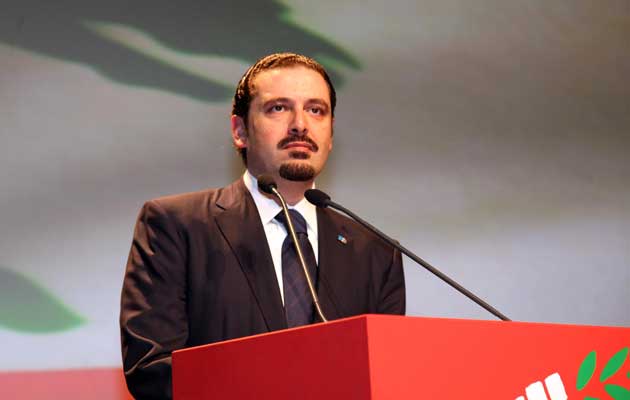Joseph A. Kechichian Senior Writer

“Any Lebanese cannot but feel insulted by the scenes of the garbage that floated in Beirut’s streets and the rest of the regions,” declared former prime minister Sa’ad Hariri in a statement released by his press office, as he reiterated his support to the incumbent, Tammam Salam, caught in a particularly vicious Catch-22 situation. The Future Movement leader blamed Hezbollah for the on-going freeze of major socio-political institutions, and pledged that he would not allow the “Party of God” to “undermine dialogue”.
As expected, heavy rains transformed streets into rivers of trash because the cabinet failed to agree on a timely solution to collect garbage that has been accumulating since the July 17, 2015 closure of the Naameh landfill. Politicians squabbled over various plans, incapable of preventing health and environmental disasters even if experts forewarned them for weeks on end. According to senior officials who spoke about the issue, a plan was presumably adopted by the panel headed by Agriculture Minister Akram Shehayyeb, though Hezbollah and its Free Patriotic Movement acolytes refused to sign the required decrees, all to further undermine the Salam government.
Hariri maintained that what was needed was “to put the decision that was taken by the government on the track of implementation [by] approving the decrees and measures that are required by the implementation process, and [by] asking all the relevant parties to shoulder their responsibilities”. “In this regard, we firmly stand by PM Tammam Salam and renew our confidence in his premiership, management and wisdom,” he added.
Although Beirut’s well-established political bickering required no further elaboration, the refusal by various municipalities to accept some of the trash collected in the capital and Mount Lebanon took on bizarre proportions and prolonged the crisis. “Sanitary landfills” in Akkar, the Bekaa and Bourj Hammoud, and the reopening for seven days of the controversial Naameh landfill, were all carefully negotiated by Shehayeb, although everyone understood that this latest elite-made crisis was not principally related to waste. Rather, it was another power play, to add to the local misery that would presumably force Salam to resign.
Hariri read the tea leaves correctly and, once again, renewed his movement’s “commitment to dialogue” despite what he described as “the ongoing attempts to plunge the country into futile debate and extraordinary agenda topics” and “the rhetoric of intimidating the Lebanese with regional junctures and illusionary victories”.
“We simply and clearly want dialogue to continue under the ceiling of the Lebanese national interest and nothing else, not within the boundaries of preconditions, foreign diktats and military shows of force,” the former prime minister added. He underscored the necessity to limit dialogue to the essential concern, namely ending the presidential vacuum, although elites failed to settle on a unifying national figure who rose to the occasion to rekindle state institutions.
“We will not grant Hezbollah the opportunity to undermine dialogue,” emphasised Hariri, “because it is the only way to manage our differences, no matter how much the disagreements deepen, and because we have partners around the dialogue table with whom we share loyalty to Lebanon and keenness on the national interest and coexistence.” It was unclear whether others shared these sentiments as the Monday session of the national dialogue collapsed after the Phalange Party withdrew. Additional meetings were scheduled for next Tuesday, although continuing rain meant that the garbage rivers would not be brought under control over the course of the next few days.



